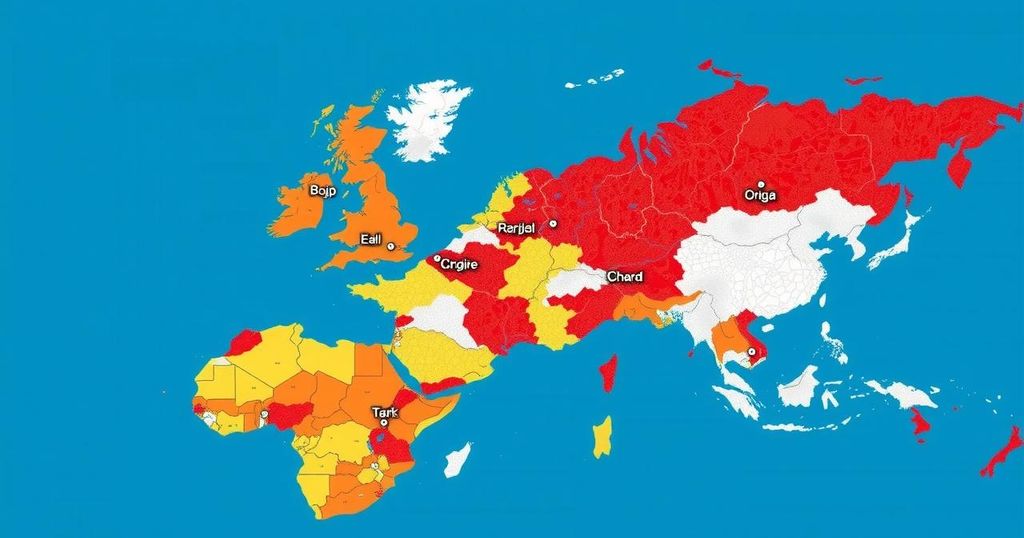Albania’s elections on May 11 will allow expatriates to vote for the first time. With 3.6 million potential voters, the elections are expected to be contentious amid ongoing opposition protests against Prime Minister Rama’s government. The opposition accuses the Socialists of corruption and misconduct, while international bodies urge dialogue to avoid violence in the electoral process.
Albania’s President recently declared May 11 as the date for the country’s upcoming parliamentary elections, a significant event as expatriates will have the opportunity to vote from abroad for the first time. The number of eligible voters stands at 3.6 million, despite Albania’s actual population being approximately 2.4 million. A reform, supported by the major political parties, allows emigrants to participate in the elections via electronic or mail-in voting.
The elections aim to fill 140 seats, each serving a four-year term. Albanian politics has been fraught with disputes, particularly from the opposition, which accuses Prime Minister Edi Rama’s Socialist party of misconduct in previous elections and judicial overreach. The opposition, spearheaded by the conservative Democratic Party, has protested against the arrests of notable leaders, asserting that such actions are politically motivated.
In tandem with their election efforts, the Democrats have called for a nonpartisan caretaker government before the next parliamentary election cycle in 2025, a proposal that the ruling Socialists have rejected. As discussions proceed with the European Union regarding essential democratic reforms, Prime Minister Rama seeks Albania’s accession to the EU by 2030. Current polls predict a likely victory for the Socialists, reflecting ongoing divisions within the opposition parties. Furthermore, both the United States and the European Union have encouraged the opposition to engage in dialogue with the government, underscoring that resorting to violence will not contribute positively to Albania’s EU integration efforts.
The introduction of voting for Albanians abroad represents a pivotal change in Albania’s electoral process, opening participation to its diaspora, a factor that could significantly influence the elections. The broader context of the elections is characterized by persistent opposition protests and allegations of government corruption, which have plagued post-communist Albania’s political landscape. The complications of the past, including irregularities like vote-buying, underscore the importance of transparency in the electoral process—particularly as Albania seeks closer ties with the European Union and reforms to bolster democratic institutions.
As Albania heads towards its parliamentary elections in May, the introduction of overseas voting is a landmark development. The political climate remains tumultuous, with ongoing opposition protests and calls for reform. While the ruling Socialists are positioned favorably according to recent polls, the demands from the opposition for a neutral caretaker government indicate that political tensions are running high. The international community’s call for dialogue highlights the necessity for a peaceful electoral process that could pave the way for Albania’s future integration into the European Union.
Original Source: abcnews.go.com






